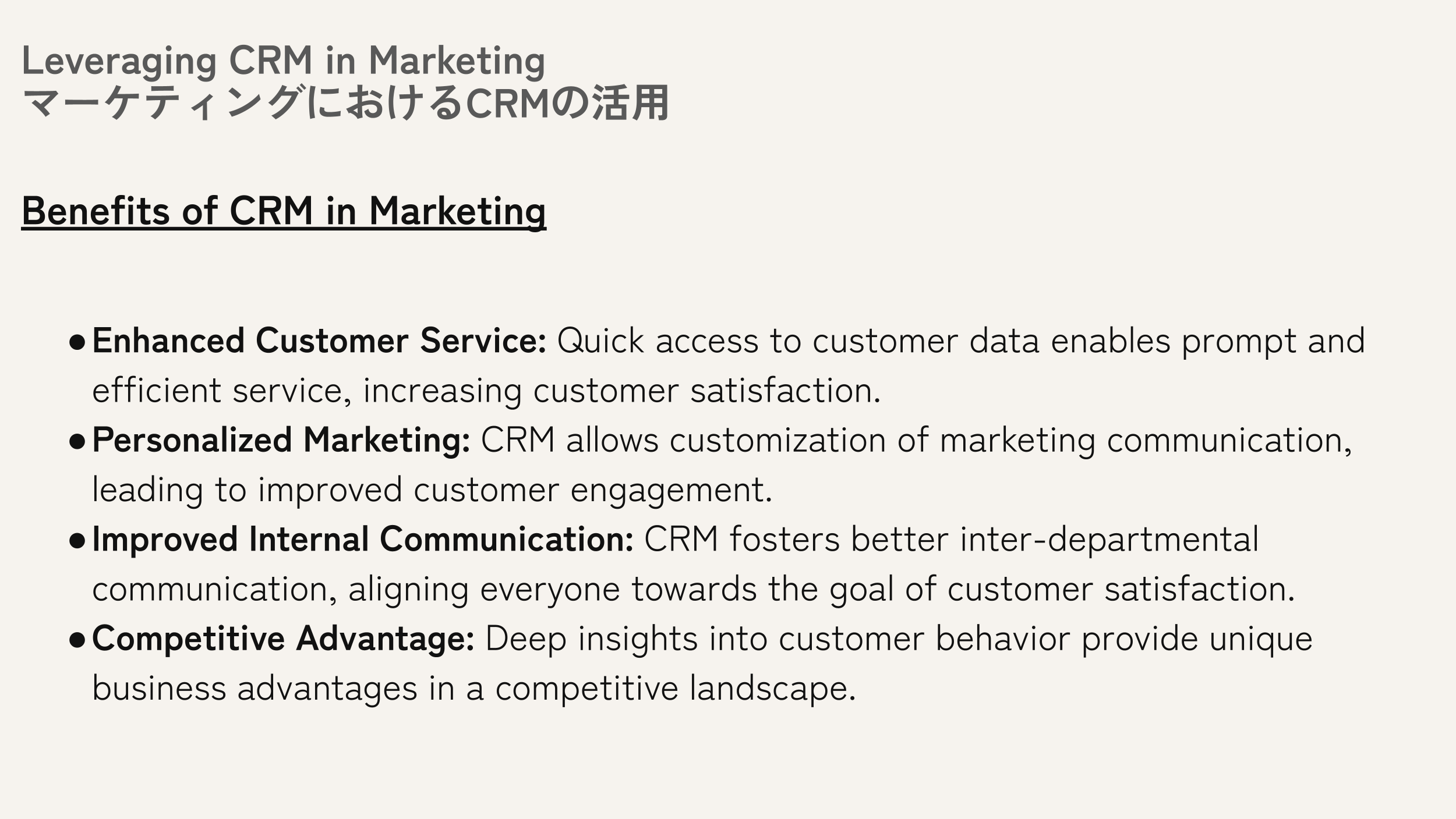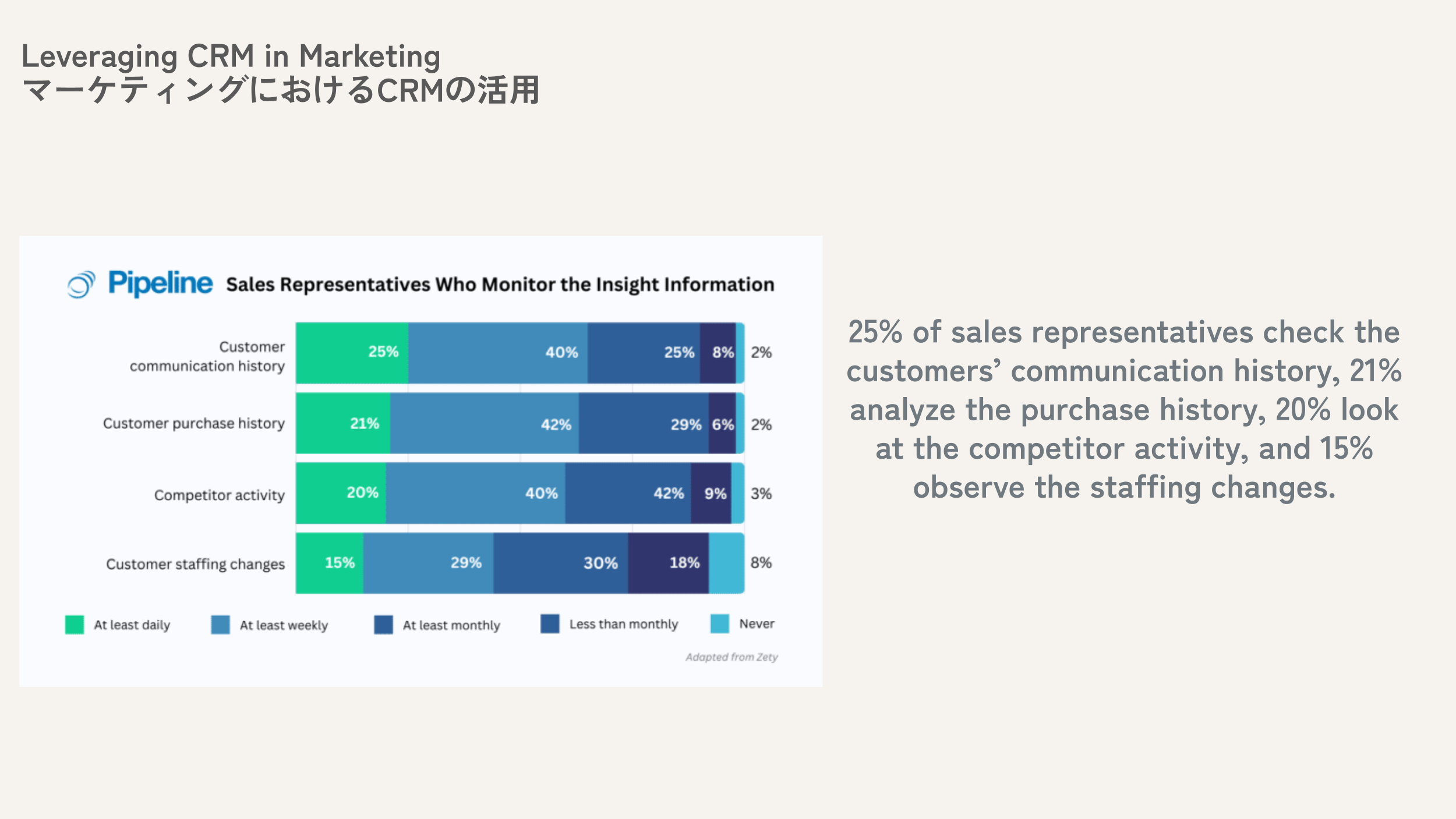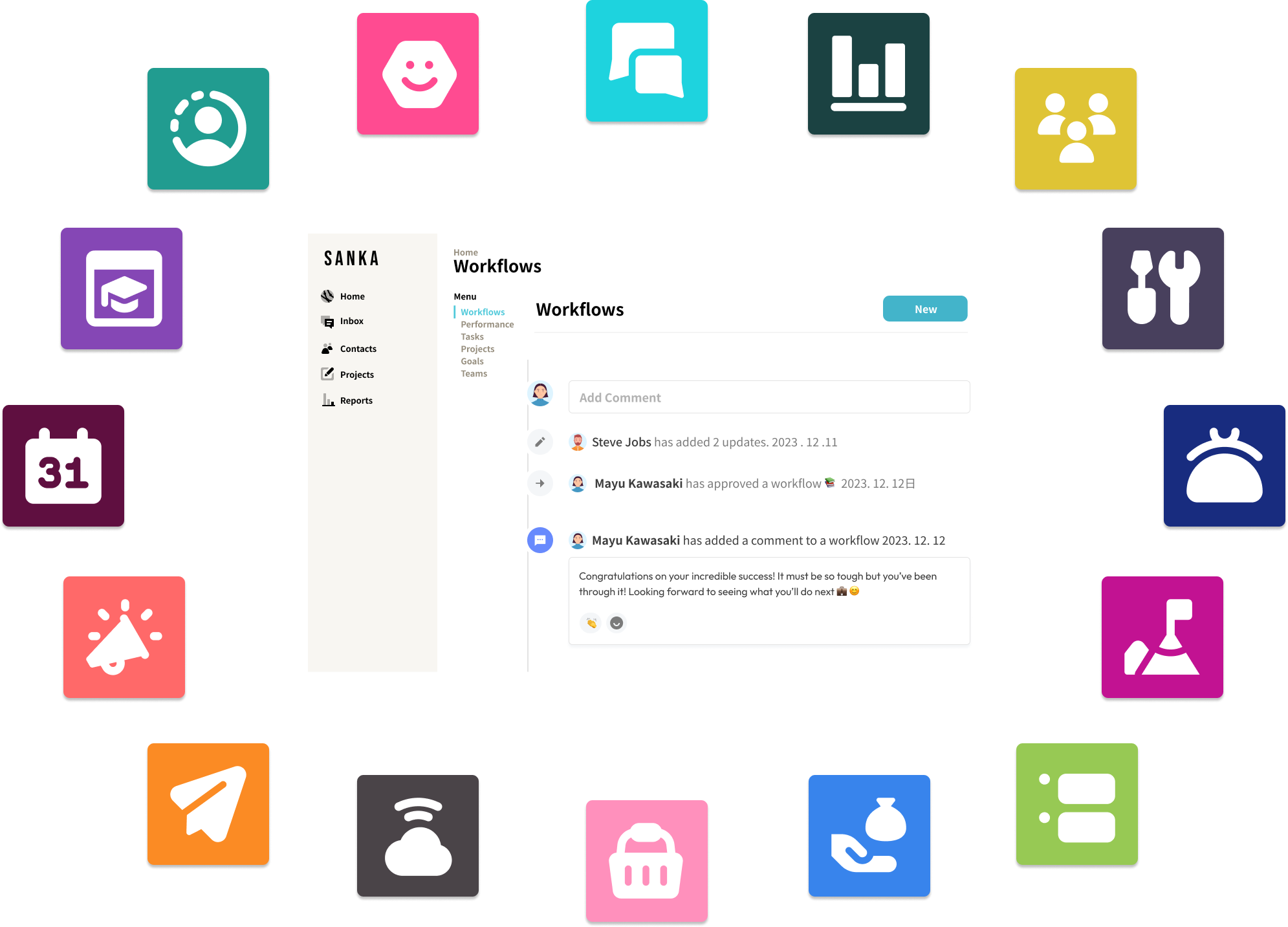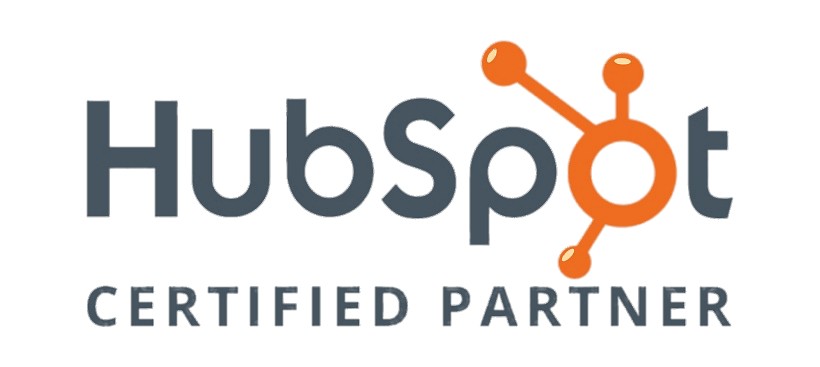Introduction
In the era of customer-centric business models, firms need to adopt strategic tools for effective relationship management and sustainable business performance. A potent tool for this is Customer Relationship Management (CRM).
Implementing CRM in marketing isn't just about driving sales; it's about putting customers at the heart of the business.
CRM's full potential stretches beyond transactional processes to engage customers, foster loyalty, and ultimately, promote business success.
In this blog, we'll explore about what is CRM marketing, how it can be utilized by marketers, then diving into the strategies employed and potential challenges.
By understanding these blog, you can gain insights into how CRM marketing can drive significant outcomes for your business.
What is CRM Marketing?
CRM in marketing refers to the use of Customer Relationship Management tools to manage customer relationships, analyze customer data, streamline processes, and improve marketing efforts.
CRM is not just technology; it's a comprehensive business strategy that revolves around customers and their needs.
CRM marketing involves leveraging a CRM system to organize, manage, and interact with the customer database of a business. It integrates customer information from various channels to create a single, comprehensive view of the customer.
The Utility of CRM Tools in Marketing
A marketing CRM tool can enable marketers to:
Improved Customer Data Management
By centralizing all customer data, CRM tools simplify customer relationship management for marketers.
They help marketing teams access, manage, and update information about their customers efficiently.
In fact, companies with organized customer data have a 68% increase in CRM growth rate.
Customer Segmentation & Targeting
CRM platforms enable marketers to segment customers based on various parameters, such as demographics, interests, buying patterns, and more.
This granular approach empowers marketers to develop tailored marketing campaigns that resonate with the target audience, significantly improving the return on investment (ROI).
Customer Retention & Lead Generation
CRM tools contribute significantly to customer retention and lead generation. The data shows that adopting CRM systems can lead to an increase in sales revenue by 41% per salesperson.
Moreover, CRM tools can enhance lead generation by automating the prospecting process, capturing leads from various channels, and tracking them through the sales funnel.
Personalized Marketing & Improved Customer Engagement
CRM systems allow marketers to personalize their interactions with customers using their behavioral data.
Personalized marketing leads to better customer engagement and retention, as it addresses customers' unique needs and preferences. CRM-enabled companies have seen a 5.60X increase in customer retention.
Analyzing Customer Behavior & Gaining Valuable Insights
At their core, CRM tools enable marketers to analyze customer behavior throughout their journey.
They provide valuable insights, helping marketing teams understand customer preferences, pain points, and areas for improvement.
These insights help businesses make informed decisions and create data-driven marketing strategies.

Different Types of CRM
As Customer Relationship Management (CRM) continues to evolve, it's crucial to understand the various types of CRM available and their unique offerings.
Primarily, CRM systems can be categorized into three types: Operational, Analytical, and Collaborative.
1. Operational CRM
Operational CRM focuses on automating and streamlining day-to-day business tasks and processes, such as sales force automation, marketing automation, and service automation.
Operational CRM aims to simplify various business processes, enhance communication with clients, and improve customer service.
It also helps generate leads, convert them into contacts, provide needed service, and maintain and strengthen customer relationships.
It's no surprise that with operational CRM, businesses can see an increase in sales by up to 29%, sales productivity by 34% and sales forecast accuracy by 42%.
2. Analytical CRM
Analytical CRM leverages customer data and analytics to enhance customer relations, which in turn drives customer satisfaction and loyalty, and boosts revenues.
This type of CRM helps businesses analyze customer behavior, trends, and preferences, and make more informed decisions.
It aids in understanding customer requirements better and crafting appropriate marketing, sales, and customer service strategies accordingly.
It's insightful that 65% of sales reps who have adopted mobile CRM have achieved their sales quotas, indicating a strong correlation between the analytical capabilities of CRM and achieving target sales goals.
3. Collaborative CRM
Collaborative CRM, also known as Strategic CRM, focuses on enhancing communication and collaboration within an organization.
It integrates information from different departments like sales, marketing, and customer service to provide a holistic view of each customer.
The importance of this type of CRM can't be understated, as effective data sharing among teams can lead to superior customer understanding and service provision.
With collaborative CRM, companies can expect improved service levels and customer satisfaction rates up to 47%.
How to Use CRM Tools to Boost Marketing Performance
Businesses that effectively utilize CRM tools can create engaging, personalized experiences, foster stronger relationships with customers, and consequently ramp up their marketing performance.
But how exactly does one tap into the robust potential of CRM tools? Let's explore some strategic ways in which businesses can leverage CRM systems to amplify their marketing outcomes.
1. Segmentation for Personalized Marketing
CRM tools collate extensive data about a customer- details that include demographic attributes, purchasing patterns, browsing behavior, and interaction history.
This rich data can be classified into meaningful segments, allowing businesses to generate personalized strategies for each segment.
Dormeo, a renowned mattress and bedding supplier, utilized CRM-based customer segmentation to enhance its marketing strategy.
Dormeo carefully analyzed various customer lifecycle stages and created tailored marketing messages for each group.
The company used RFM (recency, frequency, and monetary value) analysis to identify high-value customers, enabling them to target their marketing efforts more effectively.
Thanks to this targeted segmentation approach, Dormeo experienced an incredible 295% increase in conversion rate and a 98% improvement in their return on advertising spend.
2. Nurturing Customer Journeys
CRM software facilitates comprehensive customer journey mapping, enabling the identification of key touchpoints and critical conversion stages.
By tracking these journeys, marketers can understand better what drives a customer from awareness to purchase and beyond.
This understanding can be harnessed to craft finely-tuned marketing strategies that align seamlessly with the customer's intent at each stage, enhancing the chances of conversion.

3. Automation for Efficiency
By automating routine marketing tasks such as email scheduling, follow-up reminders, and data entry, CRM tools enable businesses to optimize resource use and focus on strategic decision-making.
CRM automation also ensures timely engagement with customers and leads, contributing to improved lead nurturing and higher customer satisfaction levels.
4. Analytical Insights for Improved Performance
A CRM system's analytical capabilities allow marketers to identify trends, measure campaign performance, and gauge customer satisfaction.
By leveraging these insights, marketers can refine their strategies, optimize campaigns for better results, and make data-driven decisions that enhance marketing ROI.
5. Tools for Multi-Channel Integration
In today's multi-device, multi-platform world, delivering a consistent customer experience across all channels is critical.
CRM software integrates with various marketing platforms and tools, enabling consistency across channels ranging from email marketing and social media to SMS and phone calls.
This multi-channel integration ensures a seamless and unified customer experience, which is crucial for boosting marketing performance.
6. Building Stronger Relationships
At its core, CRM, as its name suggests, is about fostering relationships. By creating detailed customer profiles and tracking all interactions, CRM tools provide a holistic view of each customer.
This 360-degree view can be leveraged to build strong, personalized relationships that inspire loyalty and advocacy, leading to long-term marketing success.
Potential Hurdles and Resolutions
While a CRM system potentially offers a myriad of benefits, implementing and managing the tool isn't always a smooth sail.
Several challenges can arise and could prove to be stumbling blocks in realizing the full potential of CRM for marketing.
Here are some common CRM challenges faced by businesses, paired with potential solutions:
1. Data Quality and Integration Issues
Challenge: One of the biggest challenges faced by businesses is maintaining high data quality in their CRM systems.
Incomplete records, incorrect data entries, or outdated information can prove detrimental to CRM's effectiveness.
Additionally, integrating CRM data with other systems can indeed be a taxing process.
Solution: Establish a rigorous process for data governance, ensuring that data entered into the CRM is accurate, up-to-date, and complete.
Regular data audits can help identify data inconsistencies and gaps. Moreover, leveraging CRM platforms that smoothly integrate with other existing systems can streamline data flows and mitigate integration concerns.
2. User Adoption and Training
Challenge: Another significant headwind is the lack of user adoption. Employees may be resistant to changing established processes and might find it challenging to adapt to new CRM technology.
Solution: Effective user training is key to overcoming this challenge. Provide hands-on training sessions and offer continuous support to ensure users are comfortable with the system.
Additionally, involving users early in the decision-making and implementation process can foster a sense of ownership and increase adoption rates.
3. CRM Software Limitations
Challenge: CRM systems might not perfectly align with a business' unique operational workflows or specific needs.
This can result in complex workarounds or limited utilization of the CRM tool.
Solution: When selecting a CRM system, ensure it is flexible and customizable to your business requirements.
Look for CRM providers who offer customizable solutions and dedicate resources to tailor the CRM system to fit your unique workflows.
4. Privacy and Security Concerns
Challenge: With CRM involves handling a wealth of sensitive customer data, businesses face serious privacy and security concerns.
Any breach could lead to severe reputational damage and legal implications.
Solution: Implement robust security protocols, restrict access based on user roles, and regularly audit security practices.
It is essential to only work with CRM providers who prioritize privacy and security and comply with relevant regulations such as GDPR.
5. Quantifying CRM Return on Investment (ROI)
Challenge: Lastly, businesses often struggle to quantify the ROI of their CRM initiatives, which is crucial for justifying the investment.
Solution: Define clear key performance indicators (KPIs) aligned with your CRM objectives.
Continuous monitoring and reporting on these KPIs can provide insights into CRM's effectiveness and ROI.
Conclusion
Leveraging CRM in marketing offers businesses a competitive edge in the modern, customer-centric business landscape.
It enables businesses to forge stronger, more personalized relationships with customers, leading to more significant customer satisfaction, loyalty, and advocacy.
Additionally, CRM's ability to provide insightful customer data allows businesses to make strategic decisions that boost efficiency and profitability.
Incorporating CRM systems into marketing strategies can equip businesses with the tools they need to not only adapt to changes but also anticipate and shape customer demands.
As CRM continues to evolve, taking full advantage of its capabilities will undoubtedly remain crucial in enhancing customer relationships and boosting business performance.
Businesses that succeed in making their customers feel valued and understood are the ones that will thrive in the years to come. CRM provides the key to unlocking these transformative benefits.








